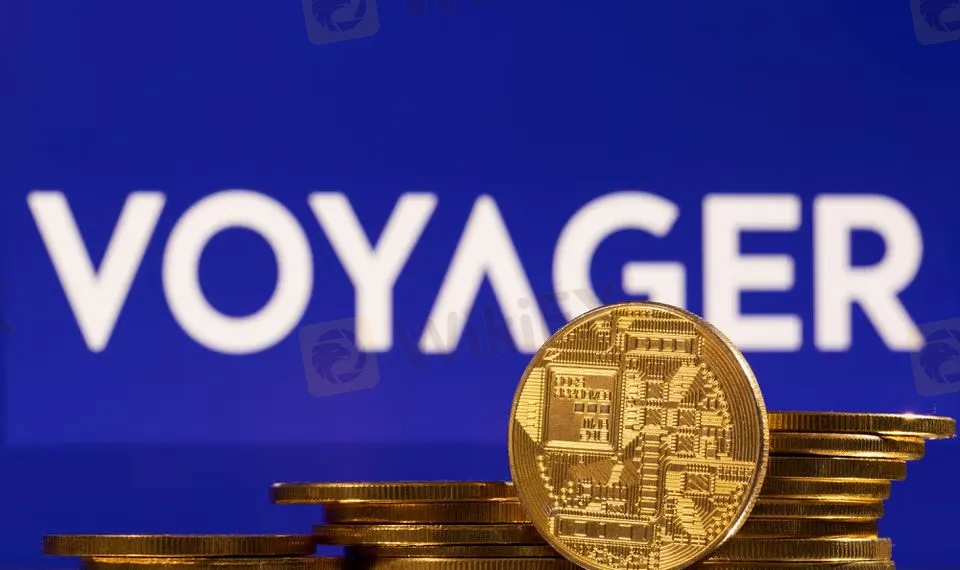简体中文
繁體中文
English
Pусский
日本語
ภาษาไทย
Tiếng Việt
Bahasa Indonesia
Español
हिन्दी
Filippiiniläinen
Français
Deutsch
Português
Türkçe
한국어
العربية
Voyager Receives Preliminary Approval For Binance Transaction Amid National Security Concerns
Abstract:Voyager Digital, the bankrupt crypto lender, won preliminary court clearance on Tuesday for a planned $1 billion transfer of its assets to Binance.US and said it would seek to accelerate a U.S. national security examination of the transaction.

January 10 (Reuters) - Voyager Digital, the bankrupt crypto lender, won preliminary court clearance on Tuesday for a planned $1 billion transfer of its assets to Binance.US and said it would seek to accelerate a U.S. national security examination of the transaction.
Voyager was granted permission by U.S. Bankruptcy Judge Michael Wiles in New York to engage in an asset purchase agreement with Binance.US and to request creditor votes on the transaction, which will not become permanent until a future court hearing.
During Tuesday's court hearing, Voyager attorney Joshua Sussberg stated that the company was responding to concerns raised over the holidays by the U.S. Committee on Foreign Investment in the United States (CFIUS), an interagency body that vets foreign investments into U.S. companies for national security risks. He said that Voyager aims to resolve any problems that would cause CFIUS to reject the deal.
“We're working with Binance and its counsel to not just deal with that investigation, but also to voluntarily submit an application to take this process along,” Sussberg said.
CFIUS said in a court filing on December 30 that its review “may impair the parties' capacity to consummate the transactions, the timetable of completion, or pertinent terms.”
Binance's deal comprises a cash payment of $20 million and an agreement to transfer Voyager's clients to Binance.
Sussberg said that the cryptocurrency trade in the United States. Customers would be allowed to withdraw money for the first time since July.
Customers are expected to recover 51% of the value of their deposits at the time of Voyager's bankruptcy filing, according to Voyager.
If the transaction is blocked by CFIUS, Voyager will be obliged to compensate consumers with the crypto it has on hand, resulting in a smaller payment for Voyager users, according to Sussberg.
CFIUS has been increasingly utilized by Washington to block Chinese investment in the United States.
Changpeng Zhao, a Chinese-born Canadian citizen, owns Binance, which has no fixed headquarters. US authorities are investigating the corporation for money laundering. Binance.US, headquartered in Palo Alto, California, claims to be “completely autonomous” of the main Binance platform.
In addition to CFIUS, the US Securities Exchange Commission and state securities authorities rejected Voyager's planned sale. Glenn authorized Voyager to continue despite the objections, noting that securities authorities would be able to protest the sale's ultimate clearance in the future.
Voyager declared bankruptcy in July, months after the collapse of major cryptocurrencies TerraUSD and Luna shook the digital asset sector.
Voyager had intended to transfer its assets to FTX Trading, but the agreement fell through when FTX declared bankruptcy in November after a flurry of client withdrawals and fraud claims, leading to the arrest of founder Sam Bankman-Fried.
WikiFX App download link
https://www.wikifx.com/en/download.html

Disclaimer:
The views in this article only represent the author's personal views, and do not constitute investment advice on this platform. This platform does not guarantee the accuracy, completeness and timeliness of the information in the article, and will not be liable for any loss caused by the use of or reliance on the information in the article.
Read more

WikiFX Review: Something You Need to Know About Markets4you
Markets4you, is a global forex broker launched in 2007. It was established in the British Virgin Islands. This broker offers its global traders various market instruments.

SEC Approves Hashdex and Franklin Crypto ETFs on Nasdaq
The SEC has approved crypto index ETFs by Hashdex and Franklin Templeton, including Bitcoin and Ethereum, marking a milestone in crypto asset investment.

North Korean Hackers Steal $1.3bn in Cryptocurrency in 2024
Over $2.2bn in cryptocurrency stolen in 2024, with North Korean hackers accounting for $1.3bn. Discover how cyber theft impacts the evolving crypto landscape.

ASIC Sues Binance Australia Derivatives for Misclassifying Retail Clients
ASIC accuses Binance Australia of misclassifying 500+ retail clients as wholesale, denying key consumer protections for crypto derivatives. Penalties and reforms are underway.
WikiFX Broker
Latest News
ASIC Sues Binance Australia Derivatives for Misclassifying Retail Clients
Geopolitical Events: What They Are & Their Impact?
Top 10 Trading Indicators Every Forex Trader Should Know
Why Do You Feel Scared During Trade Execution?
Revolut Leads UK Neobanks in the Digital Banking Revolution
Fusion Markets: Safe Choice or Scam to Avoid?
SEC Approves Hashdex and Franklin Crypto ETFs on Nasdaq
WikiFX Review: Something You Need to Know About Markets4you
North Korean Hackers Steal $1.3bn in Cryptocurrency in 2024
Currency Calculator


